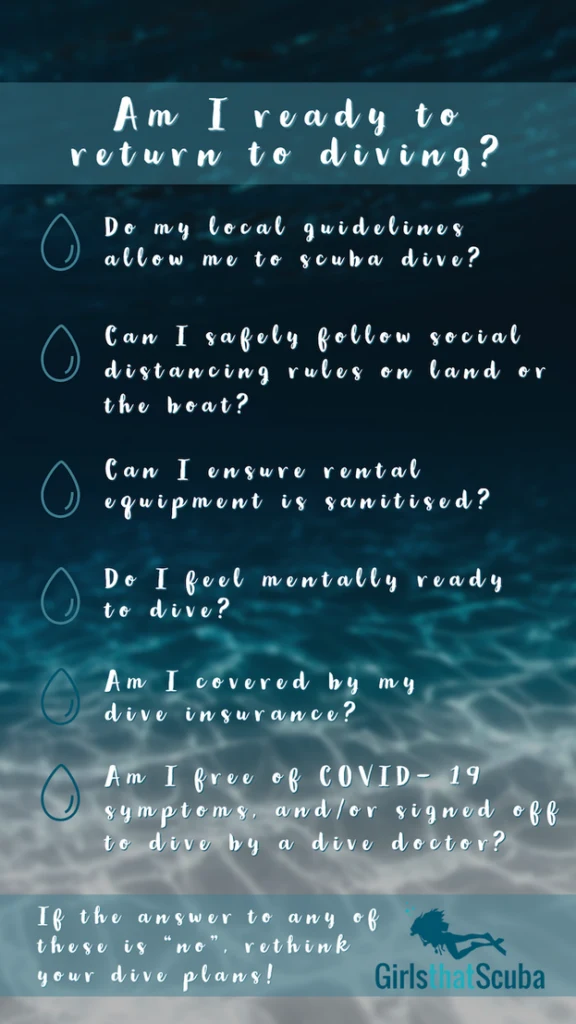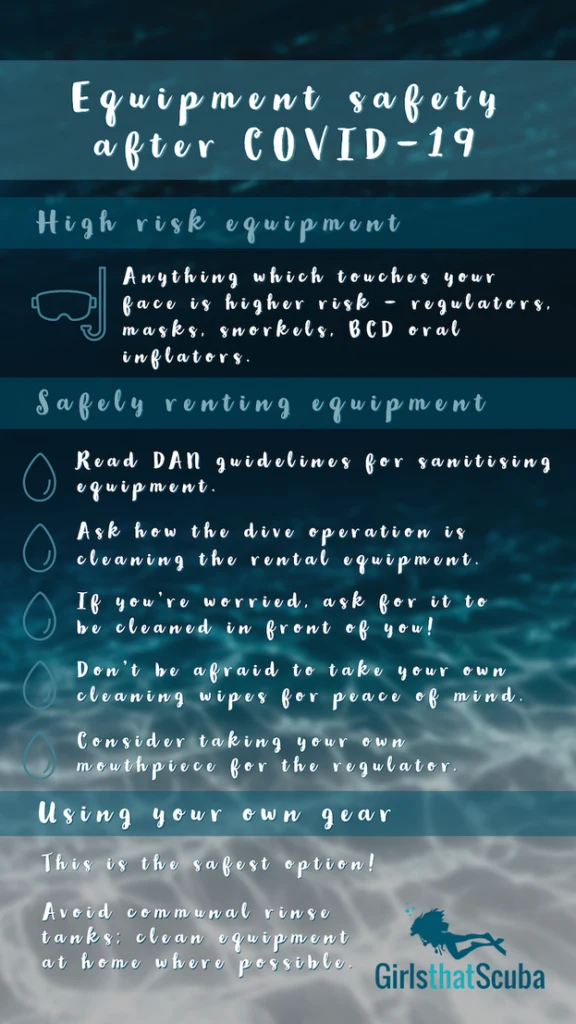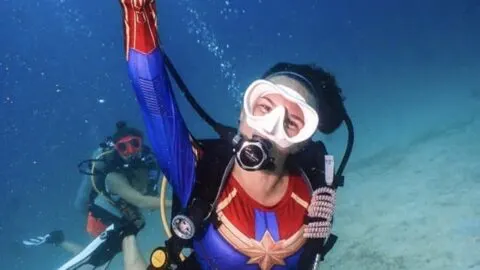The ongoing coronavirus pandemic has forced the diving industry to take an unexpected and extended surface interval. However, with many countries making great progress in containing their respective COVID-19 outbreaks, some places are making a measured and steady return to scuba diving activities.
As excited as we are to jump back in, we need to establish how we can safely return to diving after COVID-19. The lasting effect of coronavirus will be felt in the way we carry out our diving activities, so things may look a little different from what we’re used to. These changes may seem hard to navigate, and it can be challenging to know what to prioritise to ensure our safety as scuba divers, but we’ve gathered some valuable resources and examined the important things you may want to think about as you start to get your fins wet again.
Follow local regulations
We’re conscious that we’re communicating to a global audience of divers, so we urge you to firstly follow the guidelines wherever you’re returning to diving. If local authorities are discouraging diving, be respectful of that – it may be in order to preserve emergency medical services.
You should also be following the general safety guidelines outlined by the WHO (World Health Organisation), including maintaining a 1-2m distance from others where possible, frequently washing your hands, avoiding touching your face, nose, eyes and mouth, monitoring yourself for symptoms, and quarantining if you exhibit symptoms.
Adhere to Diver’s Alert Network (DAN) advice
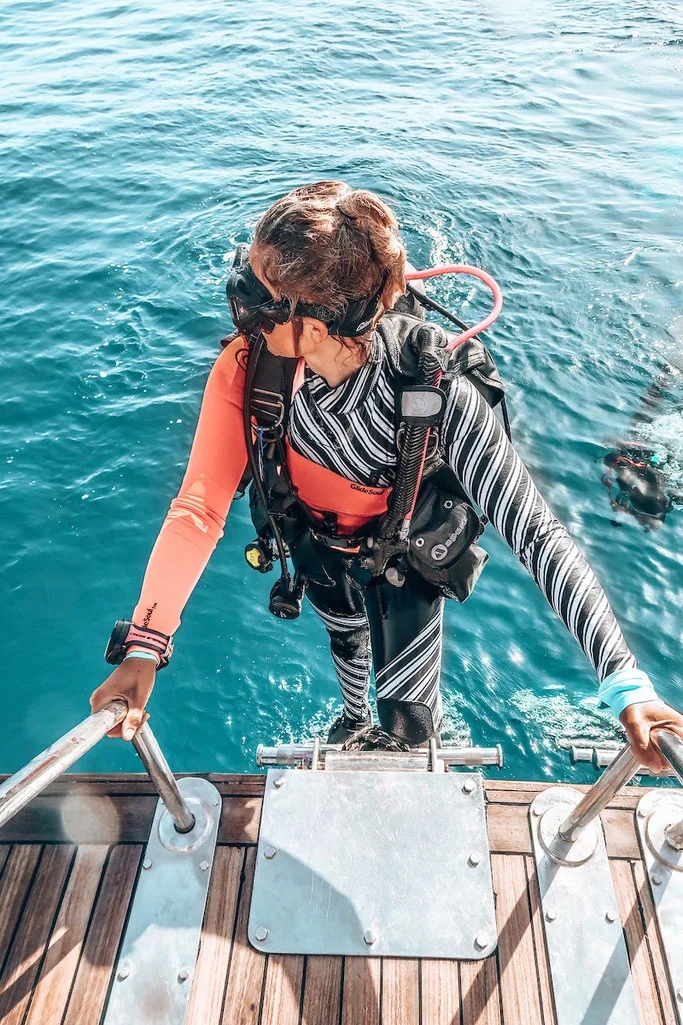
If you’re confident that your dive plans are in line with local regulations, your next port of call for checking that you’re diving safely is the Divers Alert Network. DAN’s website has a dedicated section on diving and COVID-19, with resources on best practice for sanitising scuba diving equipment, information about diving after coronavirus, and potential dive related health implications following a coronavirus case. They have also asserted their continued commitment to diver health; their dive emergency phone support services are still fully functional despite the current decline in diving activity. Whilst much of their information is aimed at dive operators to ensure customer safety, it’s valuable to read this to understand what to look out for in a dive shop.
Assess your own health
As COVID-19 is a pulmonary condition and impacts the lungs, it may have long-term impacts on scuba diving. However, with the virus being so new there are many unknowns – we’re still learning what these effects might be. There have been studies (with small sample sizes) shared around the dive community which have caused alarm for some divers by implying that if you catch COVID-19, whether mildly or severely, your ability to dive in the future may be put into question.
To clarify some of this information, the Undersea and Hyperbaric Medicine Society published an informative statement on the risks to scuba divers following a recovery from coronavirus. It states that “COVID-19 shares many of the same features as other serious viral pneumonias that require a period of convalesce before returning to full activities – a process that can take weeks or months depending on symptom severity. The long-term effects of COVID-19 on pulmonary function and recovery time will vary, and there is insufficient experience and sound clinical research to make accurate prognostic determinations.” In short, anyone who’s had coronavirus will need to make a steady return to diving, and it will take a while to know the long-term impact on diver health.
DAN Europe have published a new dive medical questionnaire which is helpful for those who have had coronavirus when working out if they can safely return to diving. This is designed to be used as a supplement to standard dive medical paperwork. Their “Medical Recommendations” clarify the action to take if you’ve had any personal experience with coronavirus. The simplest guidelines are as follows:
- “Divers who have tested positive with COVID-19 but have remained completely asymptomatic, should wait ONE month before resuming diving.
- Divers who have had symptomatic COVID-19, should wait at least THREE months before applying for fit-to-dive clearance conducted by a diving medicine specialist.”
If you have been hospitalised with COVID-19 due to pulmonary or cardiac complications there are more specific additional guidelines on the tests that should be sought out from a diving medicine specialist.
Assessing your health goes further than just your physical health. Whilst lots of people will be eager to get straight back in the water, others will be more apprehensive. This is totally normal and a valid emotion to be experiencing at the moment. If you’re feeling nervous about going back to diving, don’t feel pressured to jump in by dive club buddies. You may also find that your dive skills have become a bit rusty in the time you’ve been out of the water so ensure you take a slow start back into your diving activities. If you’re a less experienced diver, you may want to refresh your skills in a shallow area on your first few dives.
Check your insurance
It’s imperative that you always dive with valid insurance, so make sure that you haven’t allowed your dive insurance to lapse whilst on this extended surface interval. Remember that travel and dive insurance can be invalidated if you’re diving or travelling against advice; this is another important reason to follow local guidelines (and your home country’s guidelines if you’re planning to travel outside of it) for both travel and diving. If you have any questions on the validity of your cover in relation to your plans, contact your insurer.
If your insurance has lapsed, check out our Girls that Scuba membership card to receive a 5% discount on dive and travel policies with DiveAssure.
Choosing a safe dive centre after COVID-19
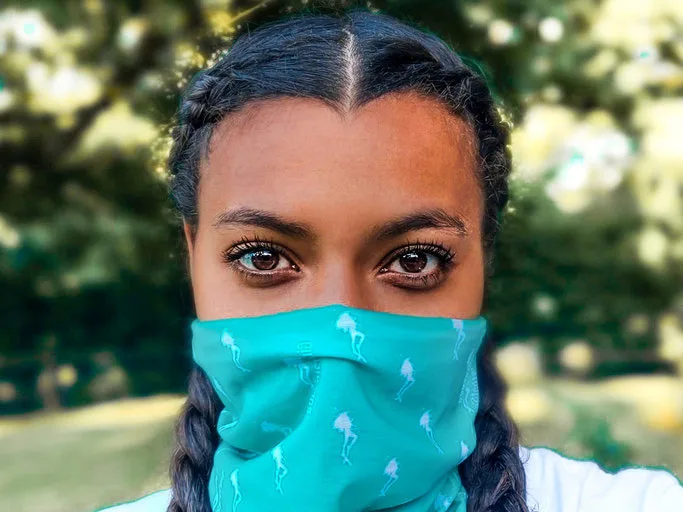
As this is still a developing situation and so much is unknown, there is no industry standard yet for how to protect divers from COVID-19. Ultimately, only you can decide whether you feel safe diving with a particular dive operation. We would suggest looking for transparency in the dive operator’s communication in order to work out whether they’re keeping your safety at the forefront of their practices.
Face coverings are being encouraged in many locations to reduce the risk of spreading the virus, and can be a great way to feel more protected at a dive centre. Our GTS face and neck cover can also make a functional multi-use face covering for days out on the dive boat. We even do them in marine prints!
If your dive operator hasn’t publicly shared how they plan to keep you safe, you’re perfectly within your rights to request that information. You may want to ask them what measures they’re putting in place to ensure staff and other divers adhere to social distancing requirements, as well as what their disinfection procedures are. Read on to learn about disinfection for equipment, and use the DAN guidelines linked below to guide your questions if you’re approaching a dive shop about their hygiene practices.
Equipment rental and coronavirus
Whilst there has been a lot of speculation on how long coronavirus can last on various surfaces outside of the body, it still remains slightly unknown and hotly debated. With that in mind, any equipment rental involves some inherent risk of contamination. However, there are some pieces of equipment which are more high-risk – specifically anything which comes into contact with your face. This includes, but isn’t limited to, regulator mouthpieces, masks, snorkels and BCD oral inflators.
DAN has created detailed guidelines backed by scientific reports to share how we should be sanitising dive equipment. Green Fins have also produced a helpful document on correctly disposing of harmful chemicals after sanitising equipment. DAN’s guide can be used to help you clean your own gear, as well as when you’re checking that a dive operation is cleaning rental equipment sufficiently.
If you’re unsure that rental equipment is clean, ask for it to be sanitised in front of you. You could also take your own cleaning supplies to sanitise mouthpieces, masks and oral inflator hoses if you so wish, as well as taking your own personal mouthpiece to attach to a rental regulator. Remember, however, that someone else’s exhaled water droplets may still be present on the internal working parts of the second stage, so it’s still super important to ensure that the dive operator is sanitising it correctly.
If you’re still anxious about renting equipment, now would be the perfect time to invest in your own – particularly masks and regulators. A well-fitting mask is one of the best purchases you’ll make as a diver; check out our rundown of mask styles here. If you’re thinking about buying more than just a mask, our full guide to buying equipment is here to help.
When using all of your own equipment you may still have to make changes to how you normally dive. If you’re used to using communal rinse tanks at a dive shop and perhaps leaving your equipment there overnight between diving days, you may want to take your equipment home and clean it independently of other divers to prevent any cross-contamination. This also applies to showering and changing after dives as these communal areas can present a hazard.
Girls that Scuba membership holders get 10% off Aqua Lung and Apeks equipment from scubadivestore
Additional resources
There’s a lot of information to consider, so we’ve put together two simple checklists summarising this article to aid you in preparing to go back to diving after COVID-19. One is prompts to ask yourself to work out if you’re ready to dive, whilst the other is a practical checklist on equipment safety. These can be saved to your phone so that they’re easily accessible – feel free to share them with your buddies on social media, too!
